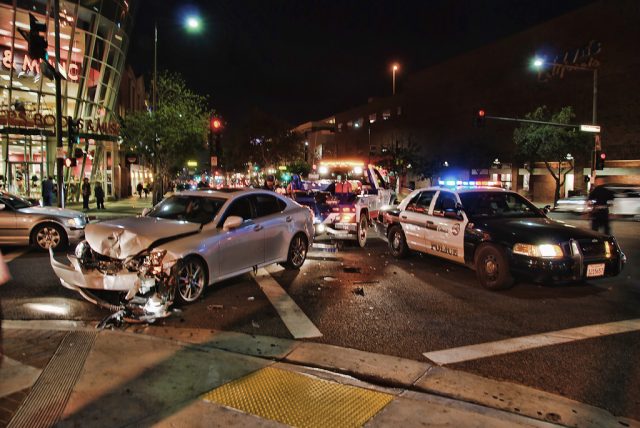
New Jersey looks set to become the next state to enact privacy laws [PDF] regarding who can view the data stored on a vehicle's black box—technically called an event data recorder or an EDR. Over 90 percent of all cars and light trucks in the US are now equipped [PDF] with EDRs that can track a vehicle's technical status and operational performance, making the information particularly useful to law enforcement and insurance companies when crashes happen. The National Highway Traffic Safety Administration has made EDRs mandatory on all new cars.
New Jersey's potential new rules are outlined in two identical bills before state legislature—one was unanimously recommended for passage by the state's Assembly Consumer Affairs Committee last week, and the other is pending before the Senate Law and Public Safety Committee. If enacted, the law would prevent access to a driver's EDR data unless law enforcement had a warrant, or EDR data could be accessed via a discovery order if the driver were involved in a civil lawsuit.Car repair shops also sometimes use EDR data to diagnose troubles with cars—in those instances, the repair facility would have to secure the owner's consent before downloading the information.
In addition, the law would require that all car owners retain the information on an EDR for two years after an accident that resulted in injury or death. If a car owner tries to destroy the black box or the information on it, they could be hit with a $5,000 fine.
New Jersey's law would follow on the heels of states like Arkansas, California, Colorado, Connecticut, Maine, Nevada, New Hampshire, New York, North Dakota, Oregon, Texas, Utah, Virginia, and Washington. Although not all of those states have laws as strict as the ones proposed in New Jersey, all of them require the owners' consent to access EDR data, except for Delaware, which requires the insurance policy holder's consent.
Still, federal law does not yet exist to protect the privacy of drivers' information throughout the nation. Earlier this year, law makers introduced the Driver Privacy Act, which is currently before the Senate but has not yet been voted on. The Act states that “any data retained by a motor vehicle's event data recorder ... is the property of the owner or lessee of the motor vehicle in which the recorder is installed, regardless of when the vehicle was manufactured.”
The New Jersey Law Journal notes that that state in particular has a history with privacy and EDRs: "In New Jersey, EDRs gained notoriety in 2007 when a State Police vehicle carrying Governor Jon Corzine crashed on the Garden State Parkway. Corzine was seriously injured in the accident, and the vehicle's EDR revealed that it had been traveling at 91 miles per hour on the 65 mph highway in the five seconds prior to the accident."
reader comments
65